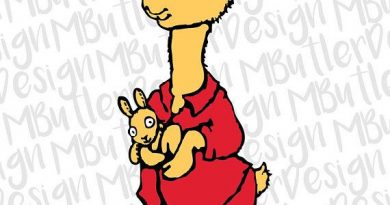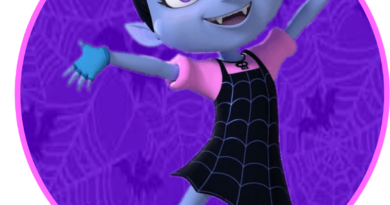Save our planet. Digital textbooks & Education resources as a source of inspiration.
Save our planet. Digital textbooks & Education resources as a source of inspiration.
Source:robinlittlewood
@oposiciones_ingles #instateachers #oposicion #oposito #tales #learnenglish #storytime #knowledge #stories #tales #readingtime #savetheworld #savetheearth #ourplanet #roadtoyourpost #news #nowornever #goldenopportunity #trees #animals #society #people #noticias #uk #usateachers #usa #YesWeCan
As part of Road to your Post strategies to facilitate the candidates´ work, in what follows we shall briefly enumerate the transversal elements embedded in the legal framework. In this regard, they are a “bunch” of paragraphs which deserve occasional reading, just to remember them and be aware that they should be somehow present in a practical example (i.e. an integrated didactic unit, or sequence of activities), since they can improve our learners’ integral development as individuals in a society.
As an example:
••Reading comprehension, oral and written expression, audiovisual communication, use of ICT, entrepreneurial attitude, civic education and Constitution awareness. These aspects shall be dealt with from the FL area by fostering the learners´ abilities to communicate in real-life contexts. Similarly, we need to introduce weighty values connected to our Constitution. Amongst them, we may highlight democratic citizenship, fundamental rights and duties like non-discrimination due to sex (gender equality), religion, place of birth, and the like. Besides, environmental care, cultural, artistic and historical heritage, responsible consumer education, public services, etc. Obviously, we shall instil these transversal elements considering the learners´ age and their integration in the FL tasks.
Transversal elements) responds to the increasing social awareness on environmental issues; and indeed, teaching young children about nature can ignite a life-long love for our planet. Therefore, teaching them to observe and care for their surroundings is a practical way to instil respect and positive values towards nature.
Unfortunately, some of the lexis we cannot miss includes terms like in climate change, global warming; and also some concepts such as the inclusion of plastic in the trophic chain and its dramatic consequences or the devastating effects of extreme weather phenomena. Nevertheless, this harsh reality can be dealt with by using “eco-friendly” children´s documentaries, like the one by Turtlediary.
The basic scientific notions required to engage children in their own “investigations” is a logical starting point, that through the English are can be approached by using adapted documentaries, where children find the necessary information to accomplish their tasks. In this sense, more than a contextualizing element for a formative unit, this kind of YouTube material has more to do with “pre-product tasks” to present lexis, linguistic structures, but also negative evidences of human actions in nature.
In guise of an example, we may imagine a project called “Save the Planet” using the story “Jungle Book” as an appealing framework. The set of practical proposals should end up by being the students able to carry out an oral presentation of a digital work called “Save Mowgli´s forest”, in which they describe Mowgli and his friends´ actions and give positive ideas to take care of the environment, such as recycling, reducing electrical and water consumption and reusing materials. From a methodological perspective, the activities should be graded, from presentation and guided exercises to more communicative practice; being students active participant who become familiar with the story as a context to practise descriptions and elements in natural environments.
More information:
Sociocultural knowledge can be enhanced through traditions, history or literature of the target language country. In other words, the social structure of a language and its culture should be an integral part of the FL syllabus, particularly if that culture differs significantly from the learners´ own one. According to Bada (2000), “the need for cultural literacy in ELT arises mainly from the fact that most language learners, not exposed to cultural elements of the society in question, seem to encounter significant hardship in communicating meaning to native speakers.”
In this light, we may consider some of the benefits of involving culture in FLT:
• Studying culture gives students different reasons to study the target language.
• Without cultural background knowledge, the contextualized situations of communication may seem fiction.
• Teaching culture contributes to develop the students´ motivation since they experiment willingness towards culturally based activities such as songs, doing research, etc.
• Studying FL and culture develops a positive sense towards the FL community and its people.
If we accept that the main goal of FLT is the attainment of communicative competence, the sociocultural elements defining a positive communicative act must be covered in parallel to linguistic abilities; therefore, young FL speakers should be provided with the knowledge to use the language in everyday situations. Otherwise, when FL speakers are not able to interpret and use adequately sociocultural aspects of communication, misunderstanding and breakdowns in communication take place.
However, developing sociocultural aspects requires defining what we understand by sociocultural knowledge. In this regard, the CEFRL suggests: “Strictly speaking, knowledge of the society and culture of the community or communities in which a language is spoken is one aspect of knowledge of the world. It is, however, of sufficient importance to the language learner to merit special attention, especially since unlike many other aspects of knowledge it is likely to lie outside the learner’s previous experience and may well be distorted by stereotypes”.
In relation to the main methodological guidelines involved in teaching culture in the FL, Byram (1988) highlights three fundamental learning processes:
• The learners´ exploration of their own culture.
• The discovery of the relation amongst language and culture.
• The learning of the heuristics (experience-based techniques for problem solving, learning, and discovery) for analyzing and comparing cultures.
Seen in this light, the characteristic features of a culture may be related to: everyday living, values, beliefs and attitudes, body language, social conventions and the like.
The main methodological consequence in relation to the development of sociocultural aspects in our FL curriculum is that they must be integrated in the different elements of the FL programming. In fact, in many regards, culture is taught implicitly, embedded in the linguistic activities that students carry out. Sometimes, depending on the age of the students, FL teachers make them aware of the cultural features reflected in the language they are learning.
As we know, the curriculum defines the importance of taking the FL world to our class. However, it is the teacher´s task to define which aspects of the English- speaking countries may be attractive and appealing to our students. Some examples may be: popular traditions and celebrations, popular songs and tales, names of important people, customs, holidays, etc. Moreover, The FL teacher may provide these cultural aspects through contextualized activities where the learners feel they are doing something with some purpose; in this sense, motivation will play an essential role in order to foster a positive attitude. Nevertheless, there are some aspects that facilitate the integration of sociocultural aspects in the FL class. Amongst them:
• Familiarity of students with English speaking countries and some of their cultural features due to TV, music or the internet influence.
• Many students feel attracted by sociocultural elements of other countries.
• The extraordinary amount of resources available to FL teachers through information and communication technologies.
More information about us:
facebook.com/OposicionesInglesRP/
Twitter: @OposIngles
https://twitter.com/OposIngles
Instagram: https://www.instagram.com/oposiciones_ingles




